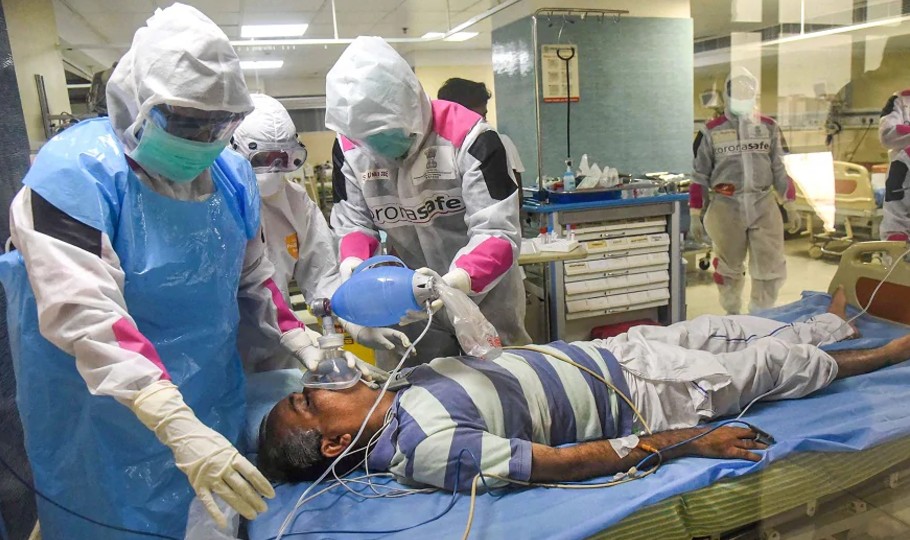
Karnataka reports 32 COVID deaths in a day; experts call for strict restrictions
The second wave of COVID-19 is spreading fast across Karnataka. On Monday the state reported 5,279 cases and 32 deaths on a single day, stated the Department of Health and Family Welfare.

The second wave of COVID-19 is spreading fast across Karnataka. On Monday the state reported 5,279 cases and 32 deaths on a single day, stated the Department of Health and Family Welfare.
Despite the spurt, health officials say the severity of cases is less as compared to the last wave.
Of the total cases, 70% (3,729) were reported in Bengaluru alone. Over the past week, the state recorded over 4,000 cases on a daily basis, with a positivity rate of 5.39% on April 5.
Also, there were instances of healthcare workers, some of those who took the vaccine, testing positive for COVID-19. Health experts say while another lockdown is not a solution, they call for stringent measures to curb public gathering.
About 13 students of Bangalore Medical College and Research Institute, along with a couple of other healthcare staff got infected. While reports emerged that all of them were vaccinated and had a travel history, Dr. Smitha Segu, Covid-19 nodal officer at BMCRI, confirmed that none of the 13 MBBS students have had any travel history and not all were inoculated.
Also read: What it means to treat mental illness amid COVID-19
“All of them were new medical students who had joined the college recently. Not all were vaccinated and none had recent travel history. The vaccines are proving to be protective as the severity of the infection is less among those who took it,” Segu said.
Two students of Sri Jayadeva Institute of Cardiovascular Sciences and Research, and healthcare staff at Manipal Hospital In Bengaluru tested positive after vaccination. There too, the doctors said the severity of infection was less.
Dr Omprakash Patil, director of Karnataka Health Department, said even those who take vaccines should take all precautionary measures like social distancing, wearing masks. Carelessness, just because one is inoculated, will not help, he said.
“We see a lot of people on the streets not wearing masks. The government needs to strictly enforce the restrictions and avoid public gatherings. Even those who took vaccine should follow these rules,” Patil said.
Also read: Autopsy on Bengaluru COVID victim shows virus active 18 hrs after death
With rising cases in the past week, doctors said a lockdown is not imminent but stringent restrictions should be in place to avoid public gatherings. The government swung into action on April 2 and imposed several stringent restrictions, which will be in effect till April 20. While the initial government order stated gyms and swimming pools should remain shut, in a revised order, the government allowed gyms to operate with 50% capacity.
Meanwhile, Manipal Hospital officials said former Prime Minister HD Devegowda, who’s down with COVID-19, showed considerable improvement and remained clinically stable.
With demand soaring for ICU beds every day, health officials says they are prepared to handle the situation and there are enough beds with oxygen cylinders all over the state. In Bengaluru, about 70% of the 1200 ICU beds have oxygen facility. Even in smaller cities, the infrastructure is being ramped up, officials informed.
“In Mysuru, we have 500 oxygenated beds across the city with 200 alone in district hospitals. While the government is telling us to live with the virus, the district administration should draw up containment zones where clusters are formed and strictly enforce social distancing rules,” said Dr. C P Nanjaraj, director at Mysuru Medical College.
Nanjaraj said elderly people, with comorbid conditions, besides school/college going students should get vaccinated as and when the facility is available for them. “Post vaccination, the chances of mortality remains less,” he added.
The doctor further said the government should have isolation centers at airports, seaports, bus, and railway stations, which he sees as a hub for COVID infections.

